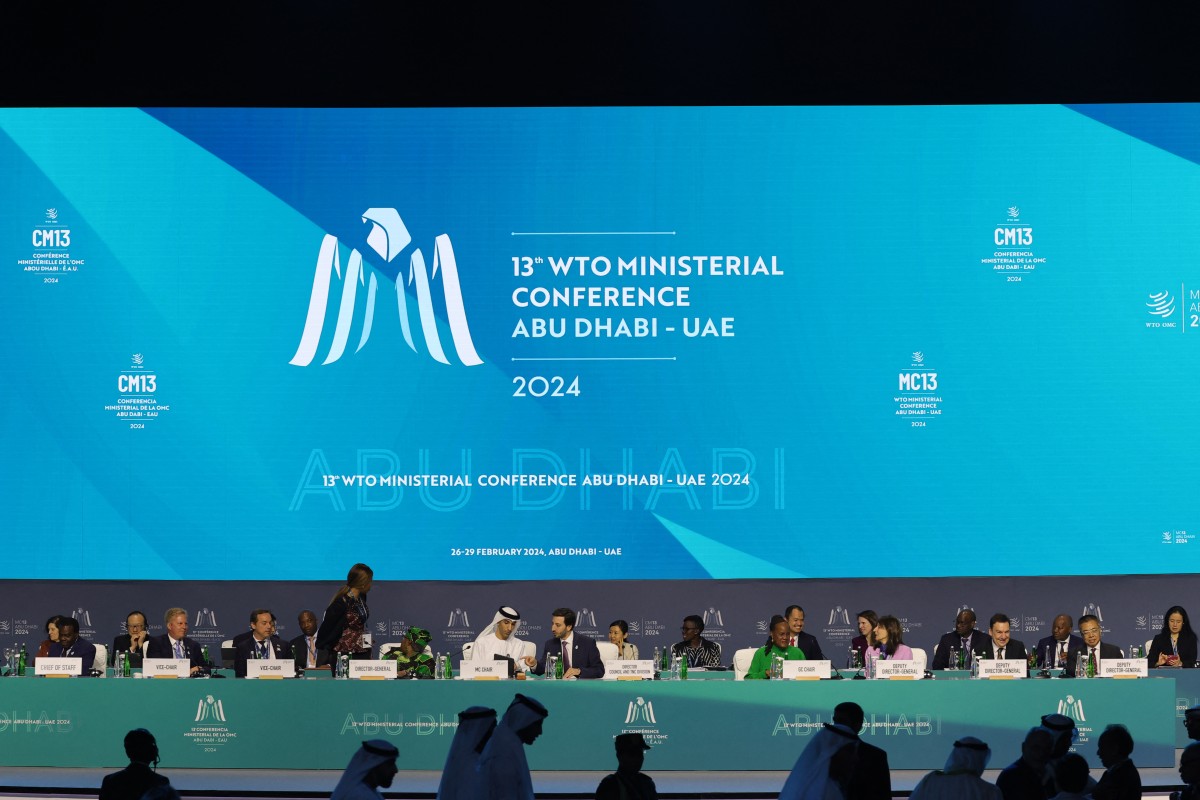Abu Dhabi, United Arab Emirates — A US-led push to reform the World Trade Organization’s embattled dispute settlement system sparked divisions at a WTO meeting Wednesday, with India accusing Washington of bringing the trade body to a “standstill”.
A working session on dispute settlement reform was held on the third day of the WTO’s 13th ministerial meeting (MC13) in Abu Dhabi, where little progress is expected on the issue amid major disagreements.
Washington, under former President Donald Trump, brought the system to a grinding halt in 2019 by blocking the appointment of new judges to the WTO’s appeals court, the organization’s highest dispute settlement authority.
Dispute settlement reform is a “hard issue” but the dynamic in the negotiating room at MC13 is “constructive, it’s positive, it’s sober,” US Trade Representative Katherine Tai told reporters on Wednesday.
But “there is more work to do,” she added, following the working session.
During the last WTO ministerial in 2022, member states reached a commitment to having a fully and well-functioning dispute settlement system in place by 2024.
The overall outcome of MC13 could only reiterate this commitment, despite demands by some member states, including India, for stronger progress at the Abu Dhabi talks.
Tai said “convergence is happening” on various areas of dispute settlement reform.
But “there is another set of issues that are going to be harder and that are going to take longer to address, including what to do with the appeals mechanism and how to have a mechanism for review that doesn’t repeat the problems of the appellate body that came before it,” she said.
Washington has accused the appellate body of over-interpreting WTO rules, with Tai on Wednesday saying the now-defunct body was formerly more powerful than member states.
It was “extremely activist, extremely powerful, more powerful than even the members, where members could secure new rules through litigation and not have to rely on the very hard work of negotiating with each other,” she said.
‘Sense of urgency’
Washington’s push for reform has angered India, which accused the US on Wednesday of bringing the WTO to a “standstill”.
India threatened to hold off on any new deals before progress is made on the appellate body, which could imperil agreements on fisheries subsidies and agriculture, largely seen as the main agenda items of the ministerial talks.
“It’s important that the first issue we should settle is that there should be an appellate body and some countries are not allowing that to happen,” India’s commerce minister Piyush Goyal told AFP.
“The entire working of WTO currently has come to a little bit of a standstill”.
Responding to his remarks, Tai said: “there is nothing standing still in this ministerial conference.”
There is a concern among observers that delays to the restoration of the appellate body could throw it into jeopardy, especially if Trump is re-elected as US president in November.
During his tenure, Trump blocked the WTO’s ability to settle trade disputes and threatened to pull the US out of the trade body – all the while launching a trade war with China.
“There is no momentum to relaunch the discussions” on the appellate body, said a source close to the talks.
The European Union, meanwhile, would like the outcome of MC13 to “get out that sense of urgency… of restoring the system by 2024,” said an EU official familiar with the negotiations.
“Political will is required…especially as something that is as bogged down as this,” said the official on the condition of anonymity because he is not authorized to speak on the issue.
“We have shown openness to say let’s address concerns about maybe some functioning of the appellate body in the past and to see how things can be improved” but the EU maintains its adherence to the two-tier system, the official said.

